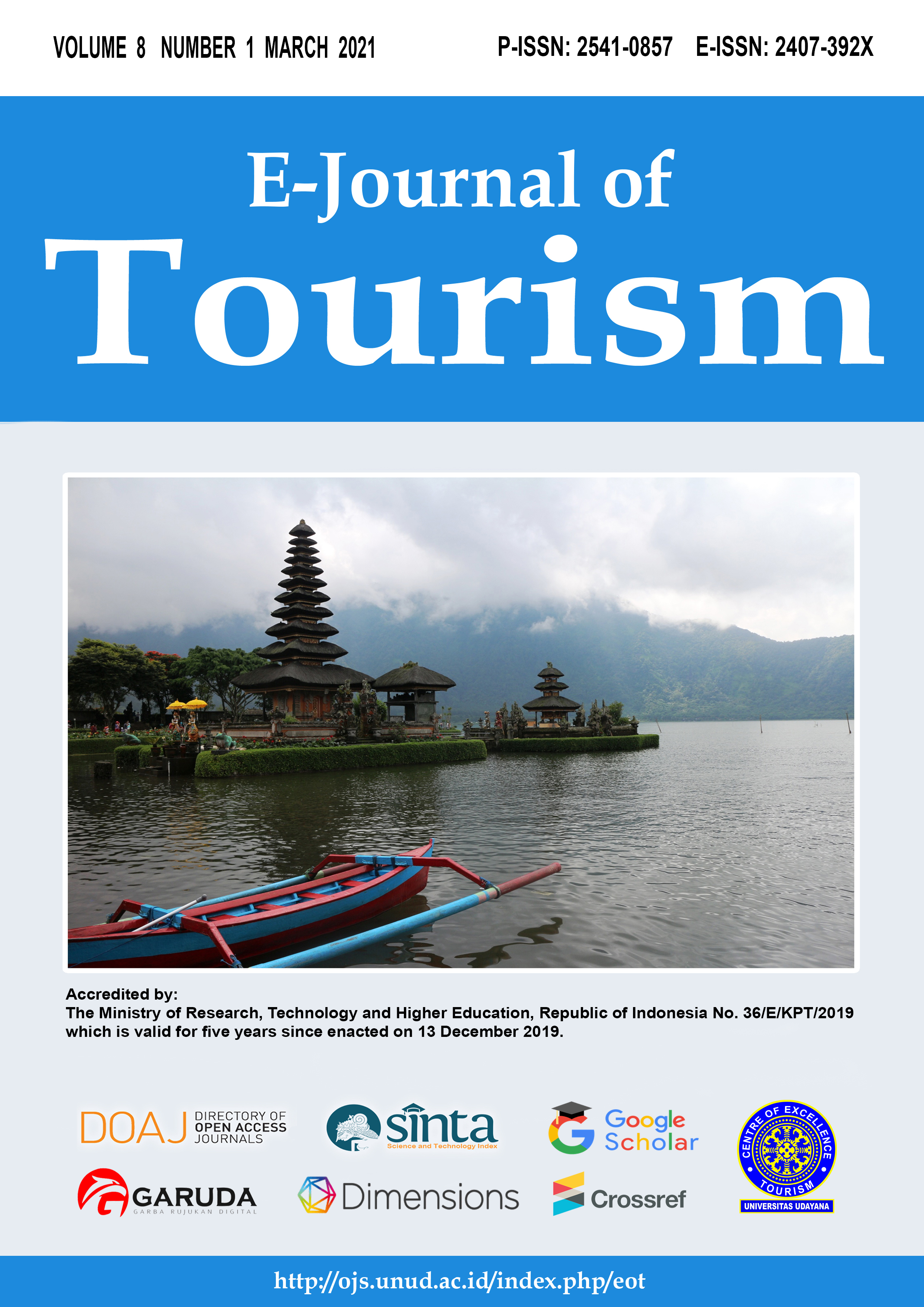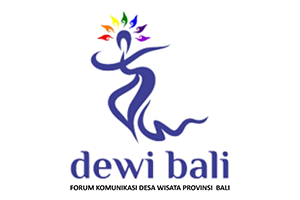Surviving Strategy of Hospitality Sector in Pandemic Situation
Case Hospitality Business in Jakarta
Abstract
Crisis in 2020 is the impact of unexpected Covid-19 spreading all around the world in which period all social and economic aspects are forced to slowing down or even temporarily stopped. In almost all countries in the world, only few sectors are allowed to run the business normally. The sectors are mainly business offering basic needs such as grocery stores, certain food and beverage, and medical. The phenomena attack blatantly hospitality sectors and it must be faced by the stakeholders of the industry. In Indonesia, hospitality industry does suffer. The human centric characteristic of the industry requires interactions between people. Human interactions are well explained as the core activities in tourism industry in the old normal while it is to be avoided during the new normal of Covid-19. Business owners and managers fight against the condition which finally pushed them hardly to unfortunate decisions for the human capital of the industry and for many other strategic issues. The crisis is present and brings a huge impact to the hospitality sector that includes hotel and restaurant business. This study is to describe the picture of how this sector in Jakarta area overcomes the pandemic situation and until what extent the management is capable to handle. A qualitative research is conducted with narrative approach, by empathising to the human capital in the sector using grounded theory approach. Challenges are encountered by the hospitality practitioners and each one of them are trying to survive with their own way.
Downloads
References
Cave, J., Prayag, G. and Ryan, C. (2012) ‘Visitor interactions with hotel employees: The role of nationality’, International Journal of Culture, Tourism and Hospitality Research, 6(2), pp. 173–185.
Creswell, J. W. and Creswell, J. D. (2018) Research Design: Qualitative, Quantitative, and Mixed Methods Approaches. 5th edn.
Denzin, N. K. and Lincoln, Y. S. (2018) The SAGE Handbook of Qualitative Research. 5th edn, Sage Publications, Inc. 5th edn. Edited by N. K. Denzin and Y. S. Lincoln. SAGE Publication, Inc.
King, C. and So, K. K. F. (2015) ‘Enhancing Hotel Employees’ Brand Understanding and Brand-Building Behavior in China’, Journal of Hospitality and Tourism Research, 39(4), pp. 492–516.
Kotler, P., Bowen, J. T. and Makens, J. C. (2017) Marketing for Hospitality and Tourism. 7th Global. Pearson Education Limited.
McGinley, S., Mattila, A. S. and Self, T. T. (2020) ‘Deciding To Stay: A Study in Hospitality Managerial Grit’, Journal of Hospitality and Tourism Research, 44(5), pp. 858–869.
Nagji, B. and Tuff, G. (2012) ‘Managing your innovation portfolio’, Harvard Business Review, 90(5).
Rantala, T. et al. (2019) ‘Identifying Strategies for Sustainable Entrepreneurship’, in Ritala, P. (ed.) Innovation for Sustainability: Sceptical, Pragmatic, and Idealist Perspectives on the Role of Business as a Driver for Change, pp. 213–229.
Sarpong, S. (2016) ‘The Service Industry and the “Moment of Truth”: The Quest for the Holy Grail’, Athens Journal of Tourism, 3(1), pp. 25–40.
Tang, H. K. (1998) ‘An integrative model of innovation in organizations’, Technovation. Elsevier Science Ltd, 18(5), pp. 297–309.
Walker, J. R. and Walker, J. T. (2014) Introduction to Hospitality Management. 4th edn. Pearson Education Limited.
Yuswohady (2020a) Stay @ Home Business: the Fall & the RISE. Available at: https://www.yuswohady.com/2020/04/14/stay-home-business-the-fall-the-rise/ (Accessed: 7 August 2020).
Yuswohady (2020b) “Stay @ Home” Economy. Available at: https://www.yuswohady.com/2020/03/25/stay-home-economy/ (Accessed: 7 August 2020).

This work is licensed under a Creative Commons Attribution 4.0 International License.
The copyright of the received article shall be assigned to the journal as the publisher of the journal. The intended copyright includes the right to publish the article in various forms (including reprints). The journal maintains the publishing rights to the published articles.




















